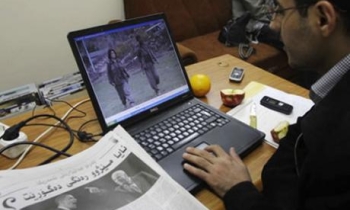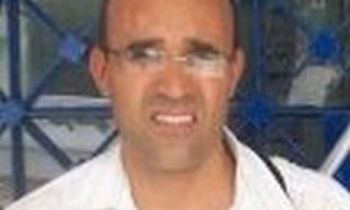Leading human rights organizations on Tuesday condemned the trial of a journalist and Chechen rights activist as a government campaign to deprive citizens of one of the last remaining alternative sources of information on the brutal war in Chechnya.
Stanislav Dmitriyevsky, the head of the Russian-Chechen Friendship Society in Nizhny Novgorod, is being tried on charges of inciting ethnic hatred in connection with the publication by the group's newspaper of statements by Chechen separatist leaders. He faces up to five years in prison if convicted.
Dmitriyevsky's trial comes at a time when President Vladimir Putin faces strong Western criticism for a restrictive law on nonprofit organizations, which he approved last week. (See story, Page 1) Rights activists said the law, which imposes strict control over NGOs, and Dmitriyevsky's trial were a state assault on civil society.
"It is an attack on the human rights movement as a whole," Yury Dzhibladze, head of the Center for Human Rights and Democracy Development, told a news conference.
Dzhibladze said Dmitriyevsky's trial would be used by authorities to discredit all rights organizations.
The case against Dmitriyevsky is centered on two publications by the group's newspaper Pravozashchita, or Rights Defense, in March and April 2004.
The paper ran statements by then-Chechen rebel leader Aslan Maskhadov -- who was killed last year in Chechnya -- urging the international community to help end the war in Chechnya, and by his envoy Akhmed Zakayev, calling on Russians not to vote for Putin and thus help end the conflict.
Prosecutors argue the statements incite ethnic hatred. A court in Nizhny Novgorod is to hear closing arguments in the case on Wednesday.
Dmitriyevsky's group is also being targeted by tax and justice authorities. Tax inspectors claim the foreign grants it is receiving amount to profit, and accuse it of tax evasion. Justice officials are seeking to close down the group, arguing it has failed to provide registration materials for inspection.
Dmitriyevsky denies all the charges.
Rights groups dismissed the prosecution of the group as the government's retaliation for its campaigning for the rights of Chechens, and for its newspaper and news agency reports on human rights abuses there.
"Authorities ... are trying to shut off the only remaining alternative source of information on Chechnya," said Oleg Panfilov, director of the Center for Journalism in Extreme Situations.
"They are telling us that freedom of speech is extremism, that there is no war in Chechnya, ... and that journalists are extremists," Dzhibladze said.









